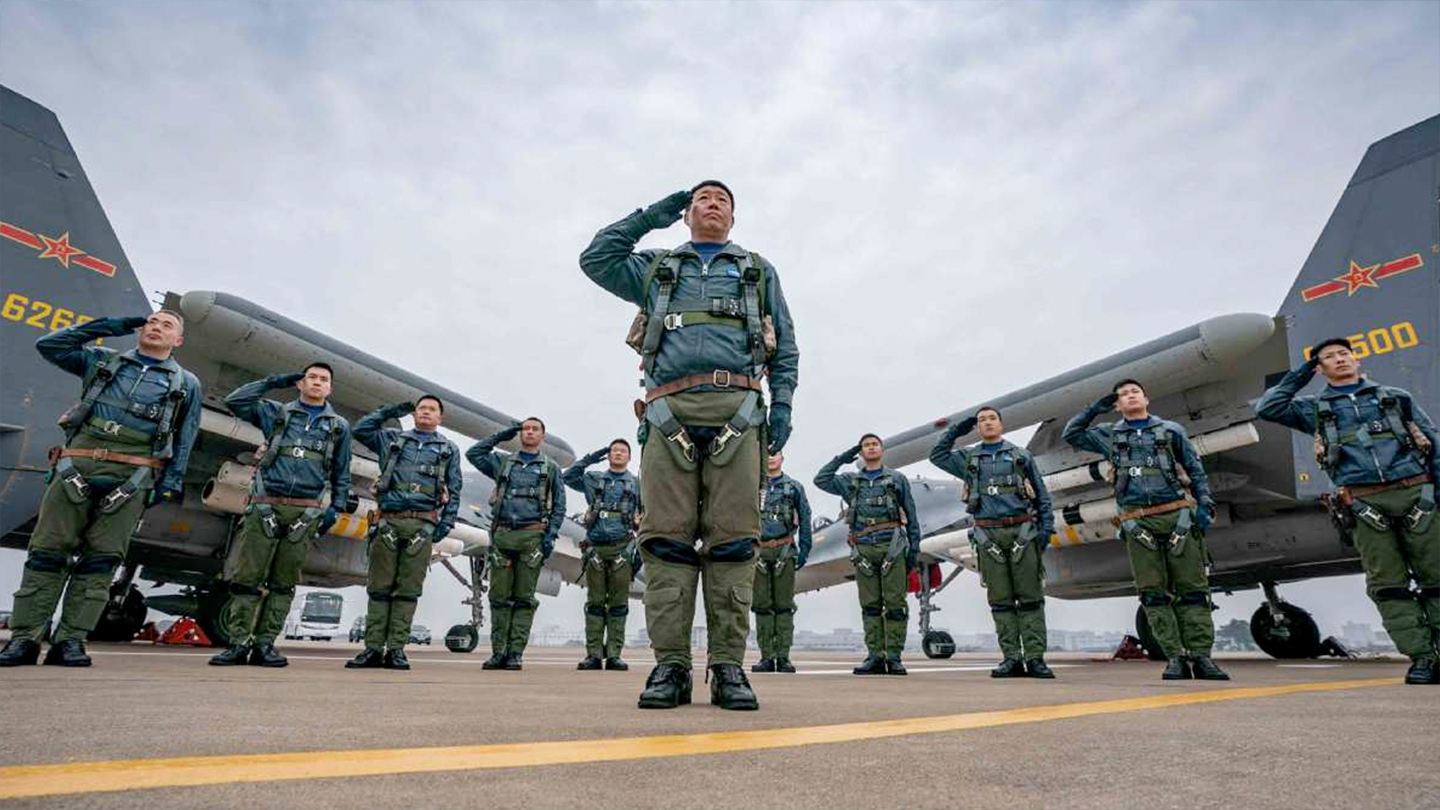Dozens of British former frontline military pilots have been hired by China to provide training and intelligence to the People’s Liberation Army (PLA), according to reports corroborated by the U.K. Ministry of Defense (MOD). The situation once again highlights the efforts China is willing to go to expand its military know-how and also sheds light on the sometimes-murky world of private defense contractors.
A story published by The Times of London states that “at least 30” pilots who previously served with the U.K. Armed Forces have been recruited by China “to help Beijing develop its tactics and technological expertise.” The pilots involved are said to be mainly former fast-jet aircrew but also include helicopter pilots. All apparently began working for China from the end of 2019 onward and are said to be earning around £240,000 (roughly $270,000) a year.
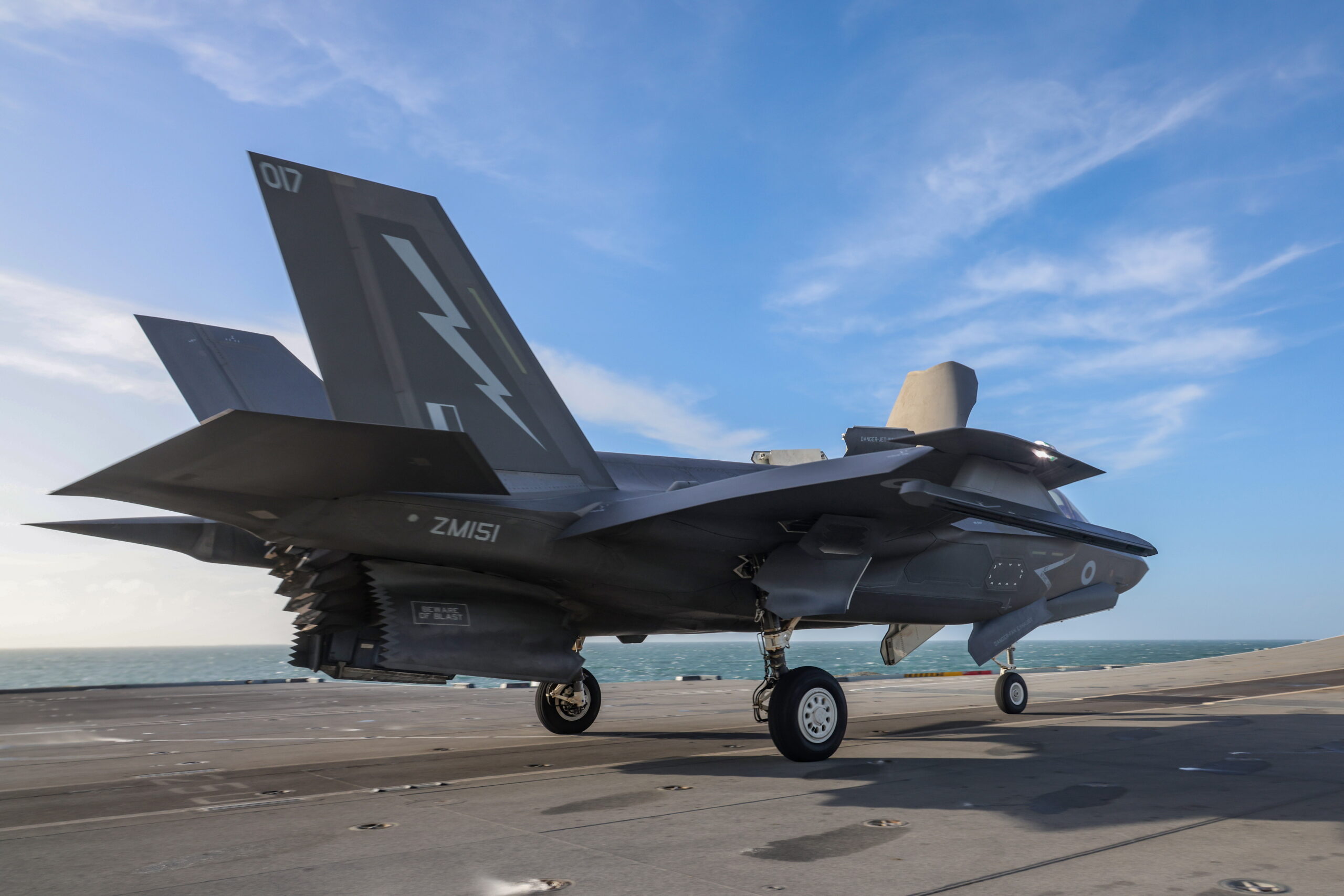
“In supporting this training, these personnel are almost certainly enhancing China’s military knowledge and capability,” an unnamed Western official told a group of British journalists. “Without us taking action, this activity would almost certainly cause harm to the U.K. and our allies’ defense advantage.”
The exact nature of the training being provided by these contractor personnel is not completely clear, although it seems it’s focused far more on tactics and technological expertise rather than hands-on flying training. In particular, it’s said that the training is intended to give the PLA’s pilots a better understanding of NATO and Western tactics.
“It’s not training Chinese pilots on Western jets,” the same official said. “It’s taking Western pilots of great experience to help develop Chinese military air force tactics and capabilities.”
The range of experts that the PLA has been seeking from former U.K. ranks is also notably wide. The Times states that efforts have been made to recruit pilots with experience flying the F-35B stealth fighter, and Typhoon multirole fighter, as well as Merlin and Wildcat helicopters, which are used for anti-submarine warfare, among other roles.
According to the same anonymous official, the pilots in question are teaching the PLA students at a privately run training center in South Africa, the Test Flying Academy of South Africa, or TFASA.
The company’s website states that it’s “always looking to recruit aviation professionals across many projects” but provides no specific details of Chinese military contracts.
On the other hand, the firm does say that its flight test aircrew “have testing and operational experience with a myriad of types,” including the Typhoon, Gripen, Hawk, Tornado, Mirage F1, and “various fighter trainer aircraft, including the Hongdu L-15 and K-8 aircraft.” The last two are both jet trainers operated by the PLA, among others. Meanwhile, a photo of an FTC-2000, yet another Chinese jet trainer, together with Western pilots, appears on the TFASA website. The same website also mentions that the company has certified “several Chinese helicopters,” including the PLA’s Z-9 and the Z-10 attack helicopter.
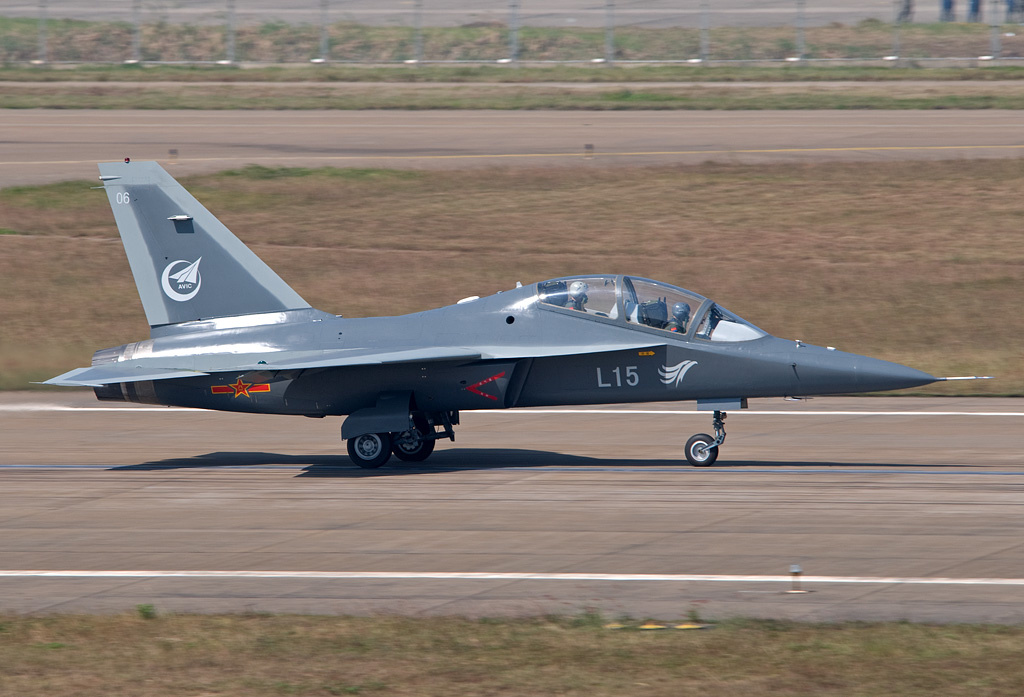

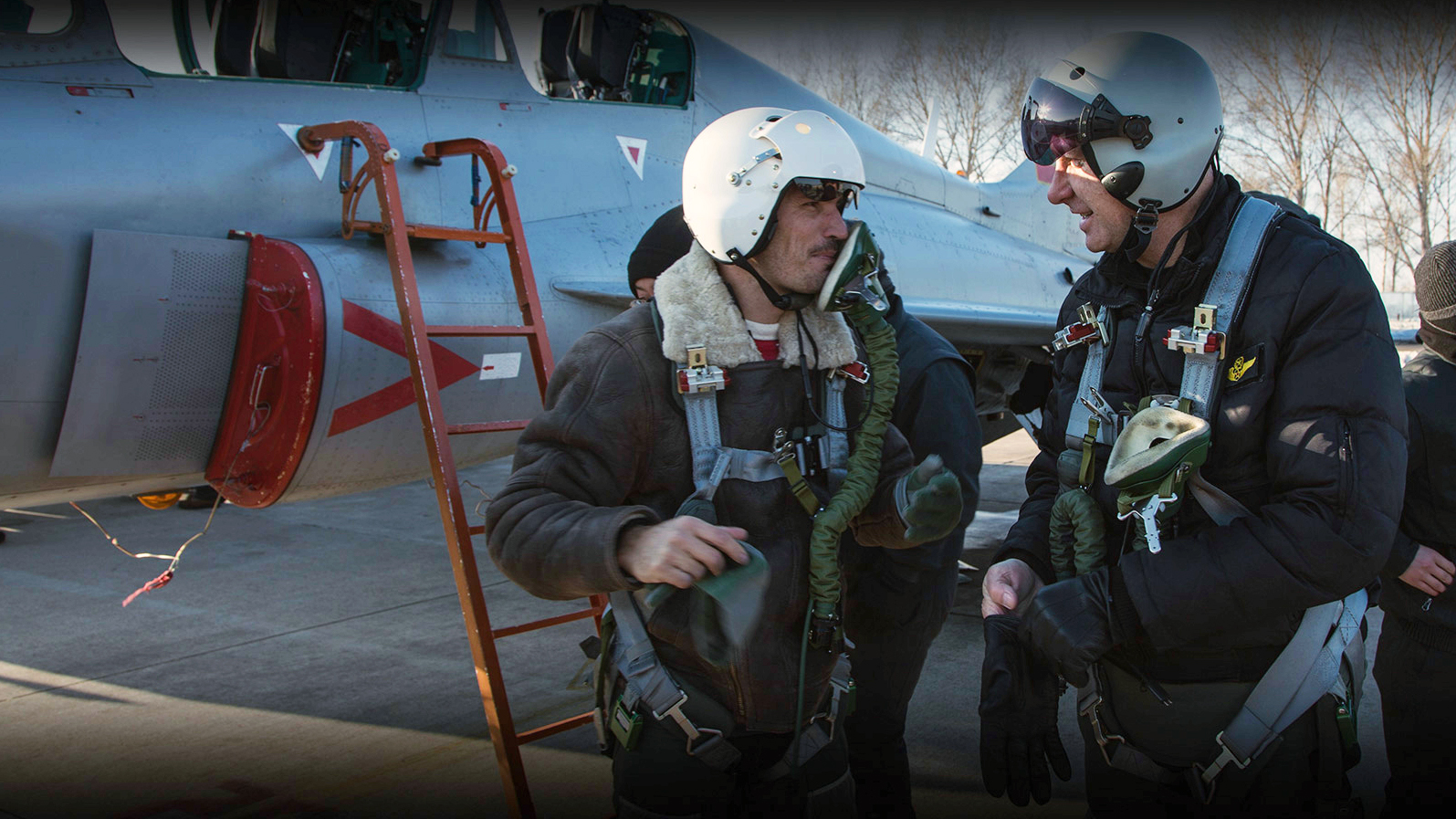
Perhaps not coincidentally, the TFASA website also shows a photo of the PLA’s J-16 Flanker multirole fighter-bomber.
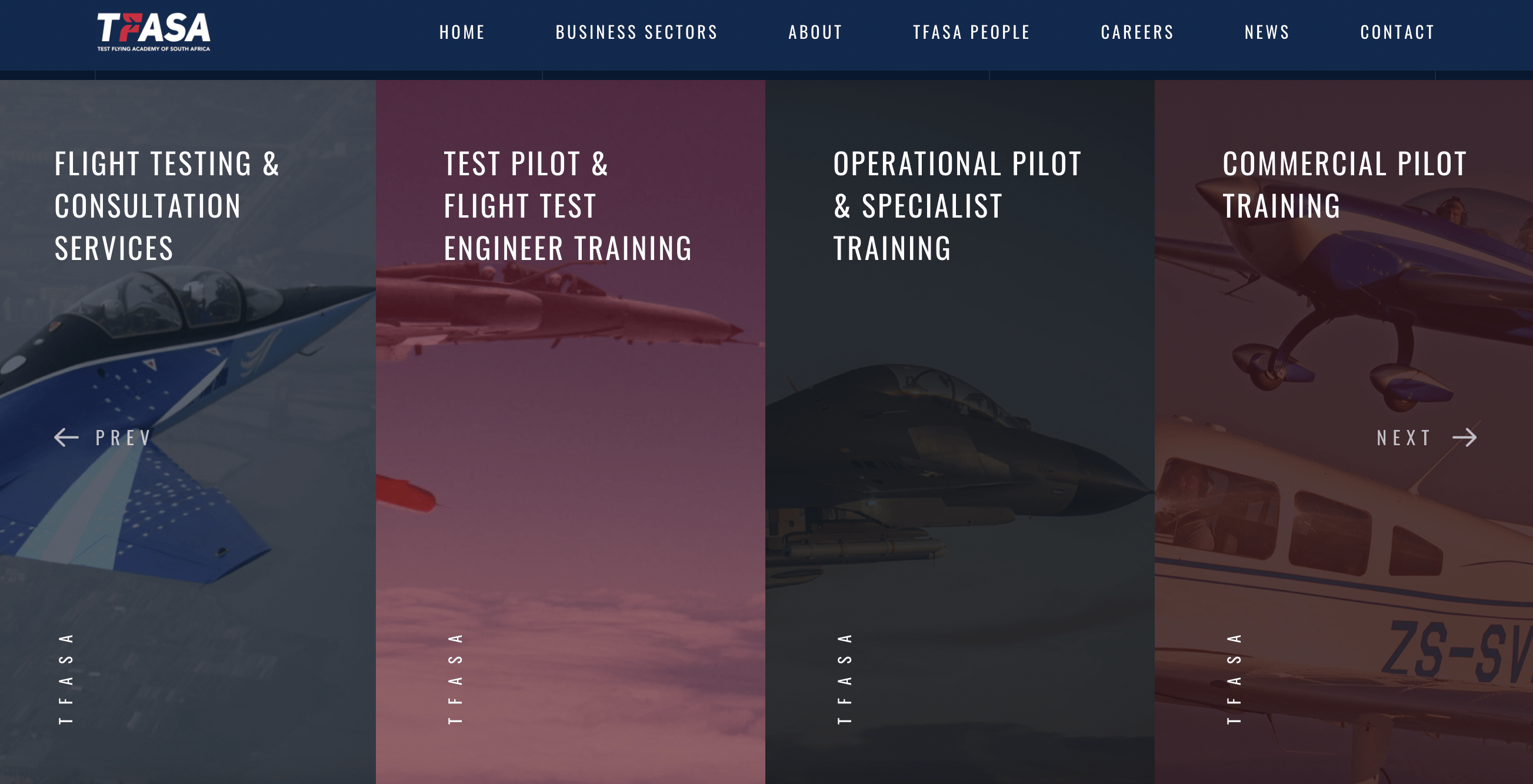
On its commercial side, TFASA says it provides flight training to “250 cadets a year from various Chinese airlines,” as part of a joint venture with the Aviation Industry Corporation of China (AVIC), a state-owned aerospace and defense conglomerate.
In the past, there have also been concerns raised about TFASA’s relationship with the PLA. In May this year, there were reports that Western intelligence services were “on alert” in response to the company’s activities, which apparently included pilot training for the PLA, including by French instructors.
Interestingly, there’s also a video on YouTube that claims to show Chinese students from the TFASA taking part in shooting firearms on a range apparently operated by another South African firm, SFC Tactical Solutions Group. The same company posted the video to its own channel under the title “TFASA October 2021 — Test Flight Academy South Africa with the guest from China.”

The weapons used in the video suggest the purpose of this shooting was recreational, rather than military training, although SFC Tactical Solutions Group does also offer what it describes as “tactical training,” and its instructors include former military personnel.
This all comes at a time of increasing cordial relations between China and South Africa. Not only do the two countries share strong diplomatic ties, with a burgeoning trade relationship, but there are also growing military ties. This would seem to reduce the chances of any action from the South African government to crack down on the training of PLA personnel in the country.
A report from Sky News also suggests that some of the ex-U.K. Armed Forces pilots are actually providing training of some kind within China. This is interesting in light of the footage of the aftermath of the crash of a PLA training jet in Henan Province that emerged earlier this year. The instructor was apparently a non-Chinese pilot; although there is no indication they were British, their identity was never confirmed and their presence in the country remains a mystery.
Exactly how compromising the recruitment of former U.K. military pilots has been, from an intelligence perspective, is unclear. There are indications that at least some of the personnel had not served with the U.K. Armed Forces for a long time and their frontline experience was on aircraft types that are now retired. According to The Times, the personnel who’ve already been recruited to train the PLA “are not thought to have breached the Official Secrets Act” — the U.K. legislation that protects state secrets and official information.
However, the issue is clearly deemed problematic enough for the U.K. Ministry of Defense not only to openly confirm that it’s happening but also to take measures to try and prevent — or at least, manage — significant intelligence breaches that might occur in a similar way in the future.
“We are taking decisive steps to stop Chinese recruitment schemes attempting to headhunt serving and former U.K. Armed Forces pilots to train People’s Liberation Army personnel in the People’s Republic of China,” an MOD spokesman said. “All serving and former personnel are already subject to the Official Secrets Act, and we are reviewing the use of confidentiality contracts and non-disclosure agreements across Defense, while the new National Security Bill will create additional tools to tackle contemporary security challenges — including this one.”
The revisions to the National Security Bill are known as the Foreign Influence Registration Scheme. Under this, anyone hired to work for a foreign government will have to declare their activity or risk prosecution. It’s not immediately clear how this would apply to someone employed by a third party, however.
PLA Air Force J-10s during air combat training, with pilots communicating in English:

The U.K. Ministry of Defense’s Defense Intelligence service today also issued a rare “threat alert” with the aim of dissuading British personnel and ex-servicepeople who may be targeted with job offers from China. Another option currently under study is whether to force personnel to sign non-disclosure agreements, The Times reports.
Speaking to Sky News, U.K. Armed Forces Minister James Heappey said that, in the future, the law would be changed to make it illegal to ignore similar threat alerts, although it’s unclear how that would be enforced. “Don’t go and train foreign air forces without checking with the MOD whether they are a foreign air force we want to see you train, would be a good rule,” Heappey said.
Again, it’s not clear how such a policy could be enforced from a legal point of view and it’s worth remembering that, as of now, there is no legislation that will explicitly ban pilots from providing this kind of training in the future.
In any case, it’s hard to see how measures could be taken to prevent former U.K. Armed Forces personnel from providing training to China (or any other country, for that matter) if they are deemed not to be in breach of the Official Secrets Act and especially if that activity is happening on foreign soil via a third-party contractor. Even if sensitive information was divulged, it would also be very hard to establish this with certainty. In the meantime, it’s important to note that nothing illegal appears to have actually taken place so far.
The MOD also said that the United Kingdom is only one of several Western countries whose aircrew (and likely other sources of military expertise) are currently being targeted in this way. No details were provided of other nations involved.
Clearly, with the PLA’s various air arms in the midst of significant modernization including the introduction of stealth fighters, plus advanced weapons and sensors, there is a requirement for training to keep pace. Increasingly, the PLA Air Force is embracing more Western-style training and combat tactics, having discarded the less flexible Soviet-era doctrines that previously dominated.
A J-10C fighter jet assigned to the 177th Fighter Brigade, a PLA Blue Force (aggressor) unit, dedicated to opposing forces (OPFOR) training:
However, there is a demand within the PLA to understand Western airpower tactics, techniques, and procedures not only to help with its internal modernization but to provide vital intelligence of the workings of its potential enemies — for example, in a conflict fought over the Strait of Taiwan or in the highly contested South China Sea.
It’s here that the possibility of the PLA having direct access to NATO aircrew’s expertise is particularly worrying. Any intelligence that would provide useful insight into how Western and allied pilots might operate in combat, or information about the capabilities of their aircraft, weapons, and sensors would potentially provide an advantage were China to go to war. And that intelligence might not be covered by the Official Secrets Act.
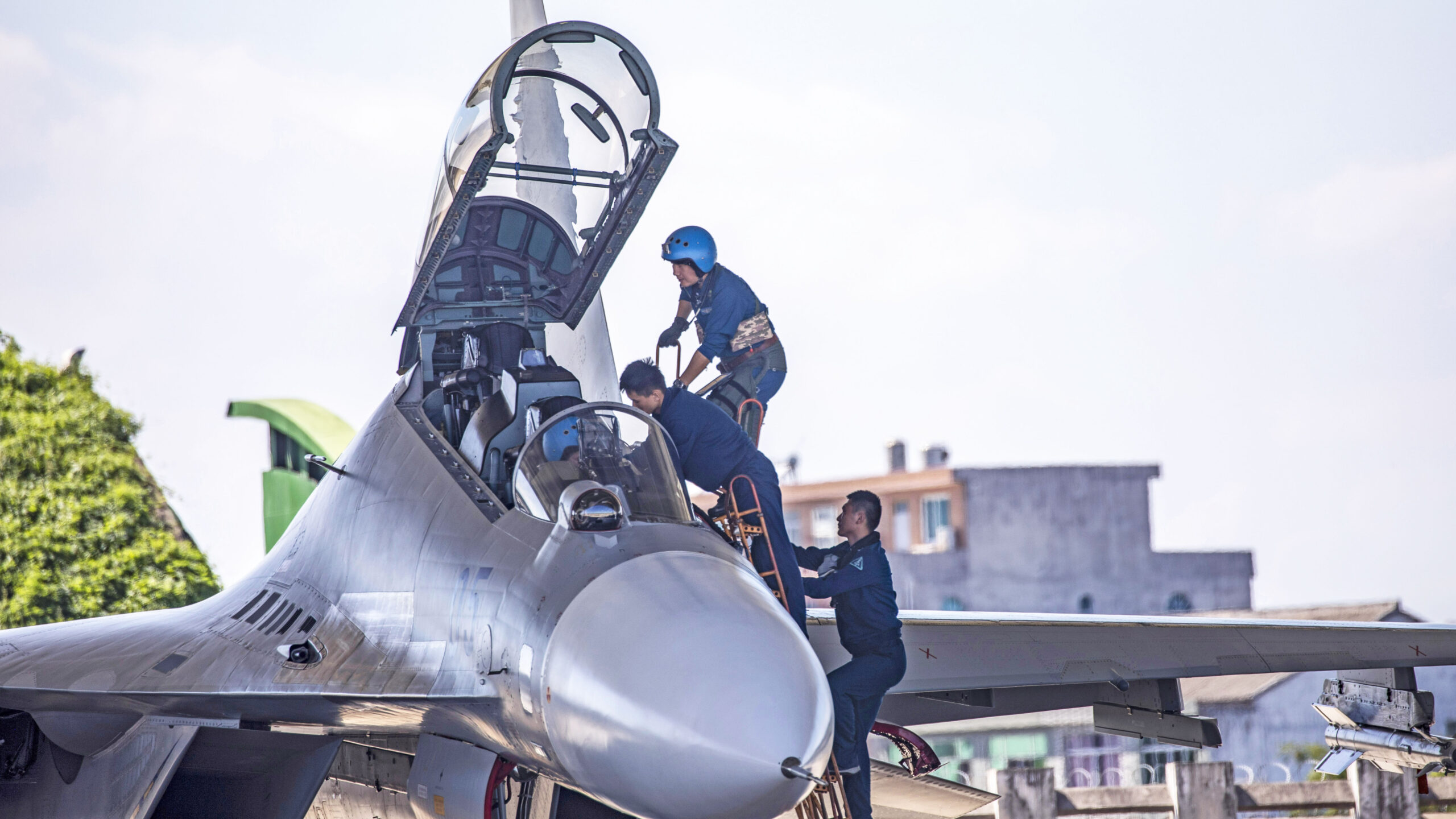
This latest issue also again provides evidence of China’s willingness to exploit loopholes in Western societies that allow it to access potentially sensitive military intelligence. Examples include the apparent use of LinkedIn to recruit potential candidates who may reveal sensitive information. This is in addition to more nefarious means of gathering espionage, some of them more traditional than others. The British pilots involved are by no means nefarious actors, and it’s likely that other individuals with critical knowledge from different militaries or related industries have divulged much more information, or perhaps even defected.
China’s appetite for military information, secret or otherwise, is unlikely to dimmish any time soon. It remains to be seen, however, if an alert from the U.K. Ministry of Defense will be enough to stop former pilots from assisting in the training of PLA personnel, now or in the future. After all, even if no laws are being broken, or the Official Secrets Act breached, it seems clear these individuals are providing valuable assistance to a strategic rival — and a potential foe.
Contact the author: thomas@thedrive.com
